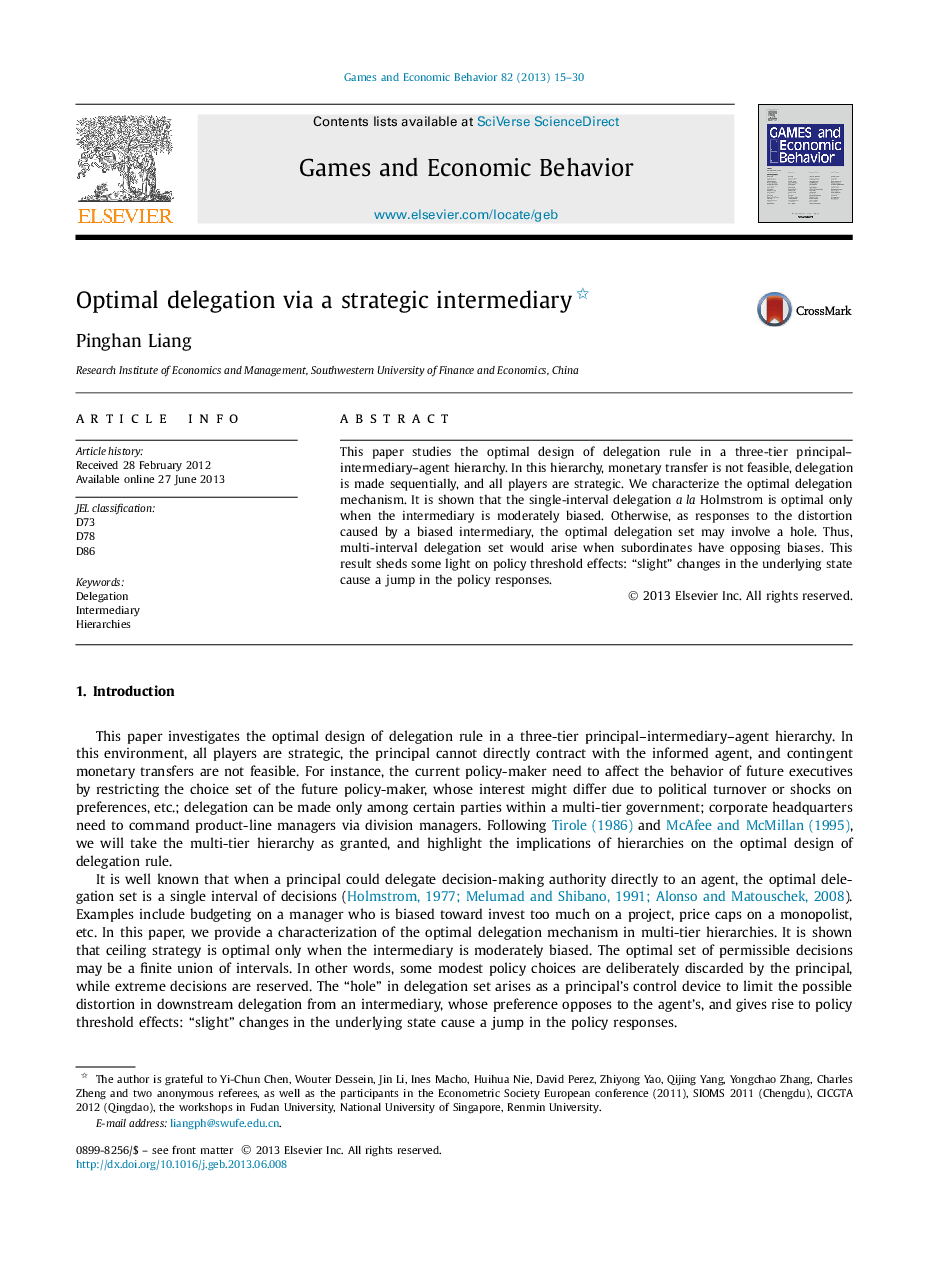| Article ID | Journal | Published Year | Pages | File Type |
|---|---|---|---|---|
| 5071756 | Games and Economic Behavior | 2013 | 16 Pages |
â¢We characterize the optimal delegation rule in a three-tier principal-intermediary-agent hierarchy, where delegation decision is made sequentially.â¢Interval delegation is optimal only when the intermediaryʼs bias lies between the principalʼs and the agentʼs.â¢Otherwise, the optimal delegation set must be unions of at most two intervals.â¢It could be optimal for a principal to exclude some moderate actions from an intermediaryʼs choice set.
This paper studies the optimal design of delegation rule in a three-tier principal-intermediary-agent hierarchy. In this hierarchy, monetary transfer is not feasible, delegation is made sequentially, and all players are strategic. We characterize the optimal delegation mechanism. It is shown that the single-interval delegation a la Holmstrom is optimal only when the intermediary is moderately biased. Otherwise, as responses to the distortion caused by a biased intermediary, the optimal delegation set may involve a hole. Thus, multi-interval delegation set would arise when subordinates have opposing biases. This result sheds some light on policy threshold effects: “slight” changes in the underlying state cause a jump in the policy responses.
